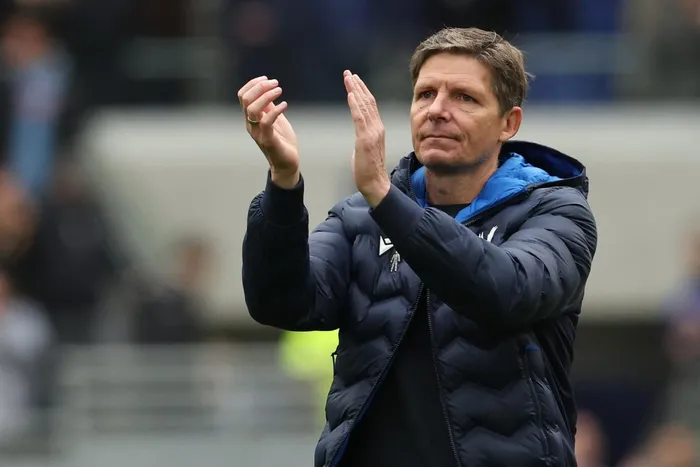Premier League’s Big Six monopoly is over: Welcome to the age of the Top 8
On the Ball

Bournemouth’s Andoni Iraola and Palace’s Oliver Glasner, pictured, have turned their sides into genuine Premier League disruptors, redefining the race for Europe and reshaping the traditional hierarchy. Photo: AFP
Image: AFP
Last season, the so-called Big Six in the English Premier League gave way to a Top Eight as Manchester United and Tottenham Hotspur lost their place at the top table, while the emergence of the likes of Nottingham Forest, Aston Villa, Fulham, Brighton and Crystal Palace suggested a shake-up in the established order.
For more than a decade, Arsenal, Chelsea, Liverpool, Manchester City, Manchester United and Tottenham monopolised the Uefa Champions League places, dictated the title race, and appeared untouchable. But last season’s shifts — not just in final log positions, but also Palace’s historic FA Cup triumph and Newcastle’s dramatic League Cup win — signalled the cracks beginning to show.
Any suggestion that this was a temporary wobble has been dispelled by the early weeks of this campaign. Bournemouth have emerged among the surprise front-runners, while Palace’s long unbeaten run was only recently halted.
Tottenham have bounced back from last season’s struggles to give the top three a familiar feel — trailing leaders Arsenal and defending champions Liverpool — but the rest of the top eight tells a new story.
Bournemouth sit fourth, followed by Manchester City, Palace, Chelsea and Everton. It’s a scenario that would have been unthinkable only a few seasons ago.
Neither Bournemouth nor Palace are viewed as glamour clubs, yet both have laid the foundations for sustained success. They have added tactical maturity and defensive steel to squads that once battled only for survival.
Bournemouth were unlucky not to beat Liverpool in the season opener, while Palace showed how it could be done with a pulsating win that sparked a ‘mini-crisis’ at Anfield. Under Andoni Iraola, Bournemouth have been transformed into one of the league’s hardest-running and most enterprising sides.
These teams are no longer content to survive — they are disruptors.
Then there are the established new powers. Aston Villa have evolved from mid-table dwellers into genuine European contenders under Unai Emery. Newcastle United, built on smart recruitment and Eddie Howe’s tactical evolution, have proven their Champions League return is no fluke. Brighton, despite consistently losing their best players, continue to punch above their weight.
Meanwhile, cracks in the traditional Big Six are widening. Arsenal finally look ready to mount the top step for the first time in more than a decade, but Pep Guardiola’s Manchester City no longer dominate as they once did. Chelsea remain plagued by inconsistency, while even champions Liverpool have shown fragility.
This shift is no accident.
The Premier League’s vast financial muscle is now spread more evenly, with mid-table clubs spending sums once reserved for title contenders. Recruitment strategies are smarter.
Managers such as Emery and Iraola bring European experience and tactical versatility. Clubs that once accepted their place in the pecking order now demand more — though the dangers of overreach are clear in the struggles of Nottingham Forest.
The result?
The summit of English football is no longer a gated community. The barriers have come down, and the so-called “noisy neighbours” are crashing the party. Eight — perhaps even 10 — sides can now realistically push for European qualification.
For fans, that’s the true beauty of the modern Premier League. Unpredictability is no longer a subplot — it’s the story itself.